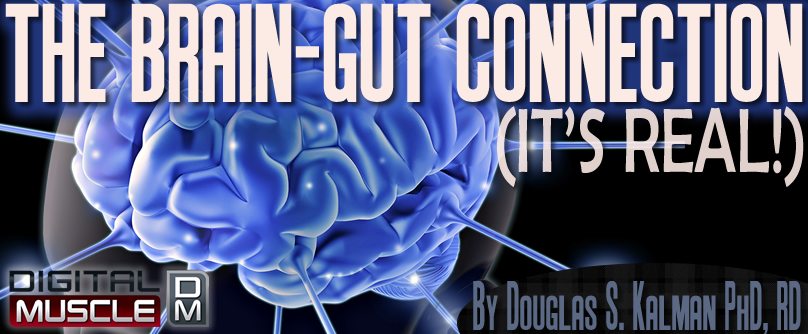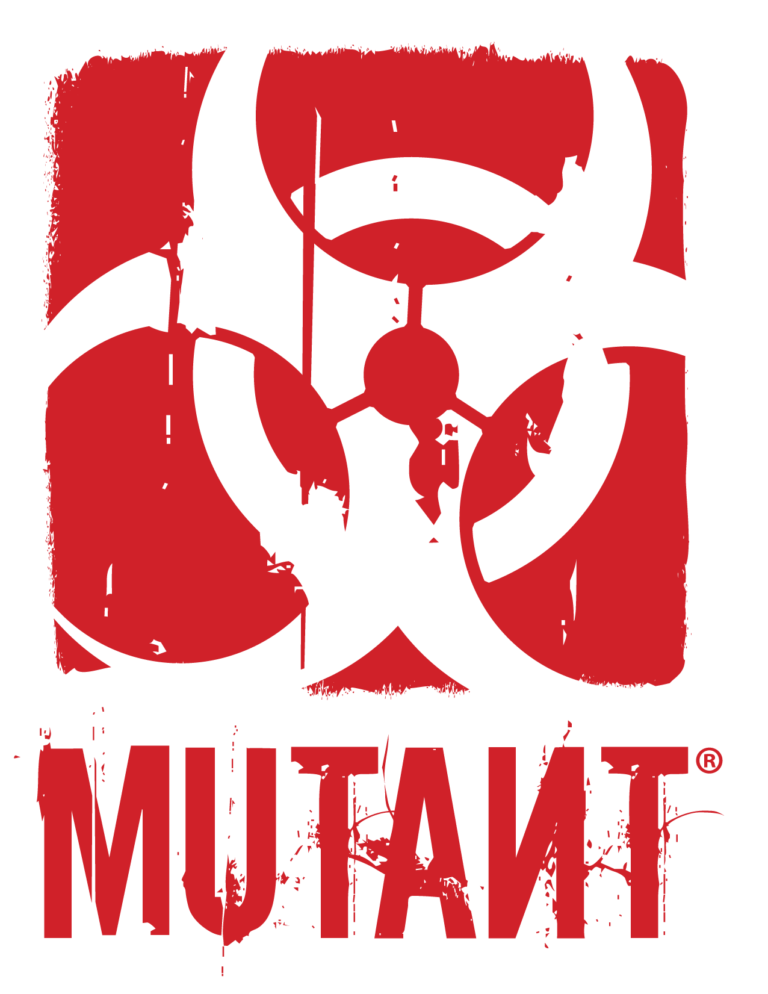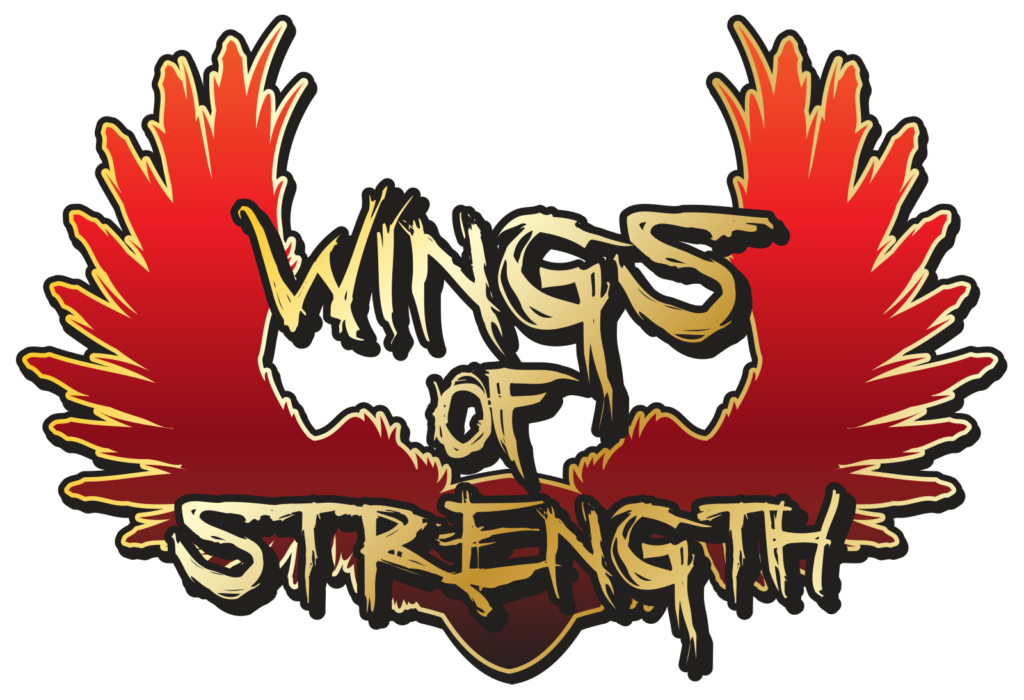By Dr. Doug Kalman, Nutrition Editor
Have you ever had the experience of being asked to speak in front of a group of people and you suddenly felt your stomach getting tingly or nervous? You’ve no doubt heard the expression “gut-wrenching” or “butterflies in the stomach”. The truth is, The brain has a direct effect on the gut. The gut can be thought of as the tube from the time you have a piece of food or beverage enter your mouth until it leaves the body. The GI tract essentially starts with opening the mouth to the esophagus all the way to the distal colon and anus. Did you know that the very thought of eating one of your favorite foods can initiate the brain to send a message to the gut that food will be coming. In turn, your gut will start releasing digestive enzymes in anticipation of the forthcoming meal. At times, your gut can send messages to the brain reporting that it is feeling satisfied or full. This article explores aspects of the gut-brain connection.
When you’re feeling down, sad or depressed does your appetite change? Intestinal distress (e.g., a nervous stomach, feeling bloated, etc.) can be the cause or product of stress, depression or even anxiety. This is definitely the case when you have someone with no physical illness or cause but has brain-gut health issues.
Did you know that those with functional GI disorders typically perceive pain more acutely than a functionally normal person? Something in those people affected by functional GI issues causes (or as a result of the condition alters) the way the brain receives pain messages and stress can exacerbate this. Functional GI issues are not psychological, but psychosocial factors can influence the actual physiology of the gut as well as symptoms.
Stress most certainly can affect how the GI tract contracts and functions. The brain-gut connection is also known as the second brain. The enteric nervous system lines the gut, and contains 100 million neurons, this amount is more than the spinal cord or the peripheral nervous system. Therefore it is correct to think of the GI tract as being a second brain in the body. Dr. Gershon describes this in his writings, even as far back as 1998, the new emerging field is known as neurogastroenterology.
Did you know that your gut contains 95% of the body’s serotonin along with direct nerve connections to the brain? The important aspect about serotonin is to recognize that serotonin is one of the major neuro-hormones that directs and affects your mood, weight and sexual drive. If 95% of your serotonin is in your gut (along your GI tract) and the major drugs used for depression and anxiety are selective serotonin receptor inhibitors, one can see how the brain and gut are truly connected. The one disease or medical condition that might cause the greatest realization of the brain-gut connection is Irritable Bowel Syndrome (IBS). IBS is not a psychosomatic disease, however emotional upsets can aggravate symptoms in someone with IBS.
Would you believe me if I shared with you that certain foods are associated with better mood states than other foods? It’s true. A daily intake of a variety of foods such as vegetables, fruits, nuts, seeds, whole-grains, legumes, low-fat dairy, lean meat and oily fish is associated with a more steady mood with reductions in mood swings from depression or anxiety.
Realizing that our second brains are also known as our GI tract or gut is important when wanting to understand that there is an interaction that is definitive between mood states and how the gut is working and this effect travels both ways. Mood states can effect how well the gut feels and acts as well as stomach pain or GI disturbances can also affect your mood.
With the above accepted, it’s time to quickly review food and mood.
1. Choose smart carbohydrates. Yes, the precursor to serotonin in the body (and therefor your gut) is the amino acid tryptophan. Tryptophan gets converted into serotonin and this is expressed 95% of the time in your gut and brain. Tryptophan that is in or produced by the brain will affect mood states. The amino acid is found in protein foods (e.g., turkey, milk, etc.), however protein foods also contain other amino acids and the array of proteins from the foods affect just which amino acids can cross the brain-blood barrier. The reality is that carbohydrate intake dictates tryptophan availability in the body to cross the brain-blood barrier.Foods such as whole grains, fruits, vegetables and legumes are the smarter carbs for a positive effect on serotonin. Combining any of these carbohydrates along with fish is one sure way to nicely impact the interaction between your “two brains” and mood states.
2. Embrace omega-three fatty acids. Omega-three fatty acids are found primarily in oily fish (such as salmon, mackerel, certain tuna) and to a smaller degree in flaxseed, walnuts and in algae. Omega-three fatty acids protect against depression because of how omega’s affect neurotransmitter pathways in the brain. Depression is also associated with low or lower levels of omega-three fats in the blood. Eating healthy fatty fish a few times per week is proactive as is supplementing with one to two grams of fish oil per day for a positive mood state.
3. Eat your greens! Green leafy vegetables are our best source of folate. Folate is also found in dietary supplements. The best supplement form of folate may just be L-3-methylfolate. Data from studies evaluating the Mediterranean diet have found that the rate of depression in both men and women were significantly higher when dietary folate intake levels were low. The study also found a similar relationship between mood states and B12 intake. Foods rich in folate and or B12 (eat a combo of these daily) include legumes, nuts, seeds, fruits, green leafy vegetables and in low-fat or lean meats, fish and dairy.
4. Sun yourself. Yes, the sun is a source of positive energy. In fact, our body makes the essential vitamin D from the initial action of vitamin D. Part of vitamin D’s function in the body include serotonin production. Vitamin D is also found fortified in foods or as a dietary supplement. Remember, maintaining levels of serotonin affect mood states as well as the interactions between your moods and how the body feels
5. Minerals are important too. In fact, dietary selenium intake is also known to affect mood states. Selenium is found in fish, nuts and seeds, lean meats, whole grains, beans/legumes and low-fat dairy. The theme of foods for a positive mood is evident to this author.
6. While this last tip is not about a food, it is totally something that affects how your mood states are and in fact, chemically alters the relationship between your two brains and resultant mood states. In fact, exercise (besides being good for your heart) also bolsters serotonin levels and is one method to also deal with stressors. Including some form of exercise daily in your life can help balance mood states and make your two brains get along just fine.
The take home tips from this article include the acknowledgement that without doubt, our guts are our second brain. This second brain has a direct relationship with our real brain. The relationship includes how moods affect your gut and how the gut affects mood states. The reality of physical feelings, mood states and nutrient intake is real. The field of neuro-gastroenterology along with neuro-gastro-psychiatry and psychology are growing as these mind-body relationships are becoming better known. Eating a diet with a wide variety of foods, use of certain dietary supplements and exercise are the key means to maintaining a positive relationship between your two brains. Adding in cognitive therapy or talk-therapy also aids for those people who are having real bad flare ups and where diet alone is not having the desired effects.
If you are a person who often has pains or disturbances along your gut and your mood is not always a balanced or great one, addressing the mind-body connection may just be the answer that solves your woes. This is an exciting field. I’m sure you’ll be hearing more about the food-mood or gut-brain connection in the coming months.
For more great information and useful health articles and tips, keep checking Dr. Kalman’s blog right here at Digital Muscle and be sure to follow his social media (listed above).
References:
1. www.health.harvard.edu/healthbeat/the-gut-brain-connection
2. www.scientificamerican.com/article/gut-second-brain/?print=true
3. www.nytimes.com/2008/09/02/health/02brod.html
Related Story: Supplement Review: A Closer Look at Bio-Gro
Dr. Kalman has been involved in over 100 clinical trials within the pharmaceutical, medical and nutrition fields, having published over 50 abstracts & more than 25 peer-reviewed manuscripts. Dr. Kalman earned a Doctorate in exercise and nutritional biochemistry and is an active member or spokesperson with many organizations (ISSN, NSCA, APS, ACSM, etc.) and a co-founder of The International Society of Sports Nutrition.





